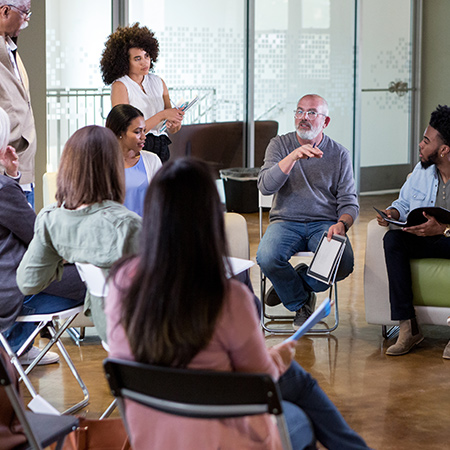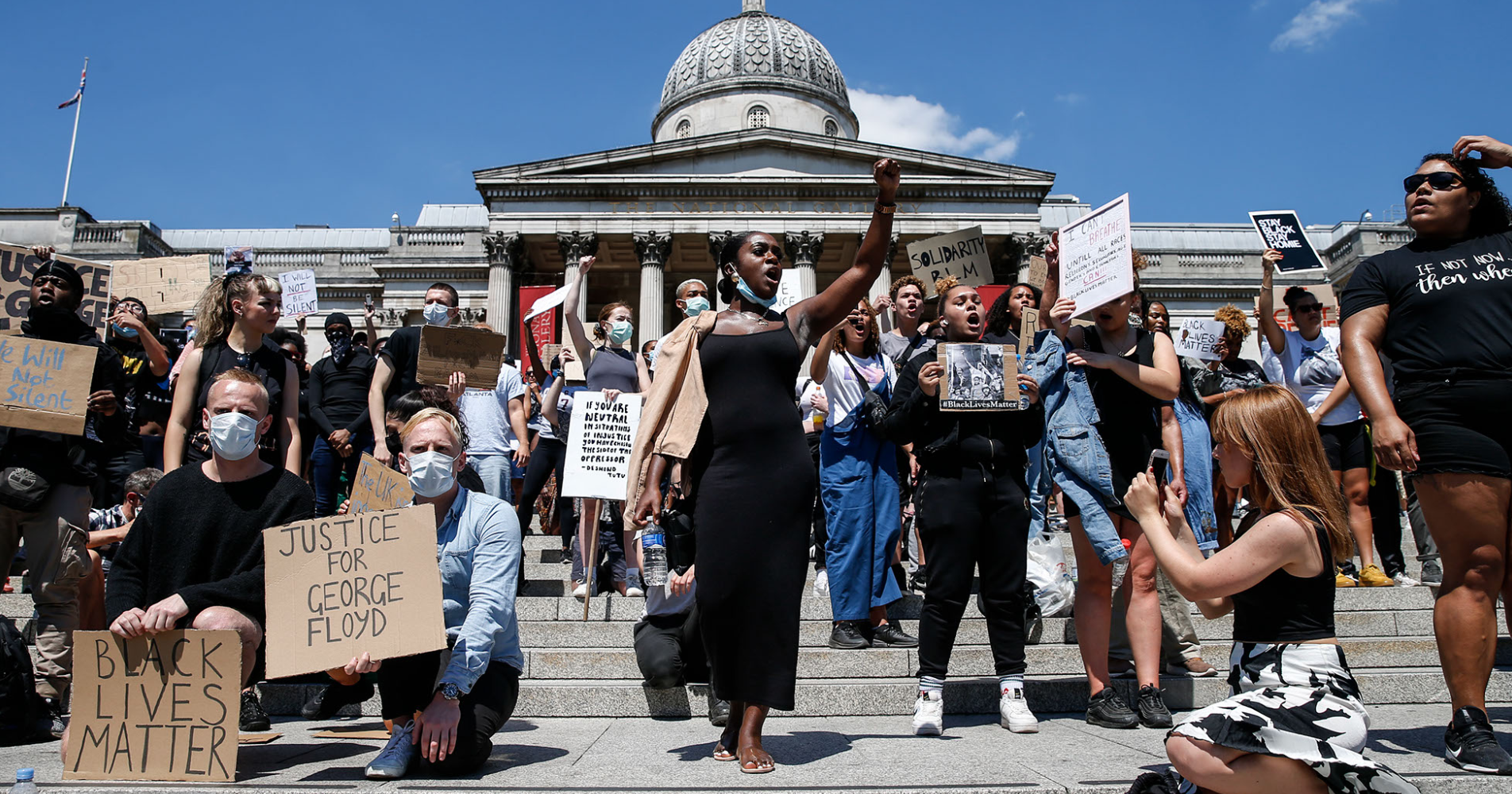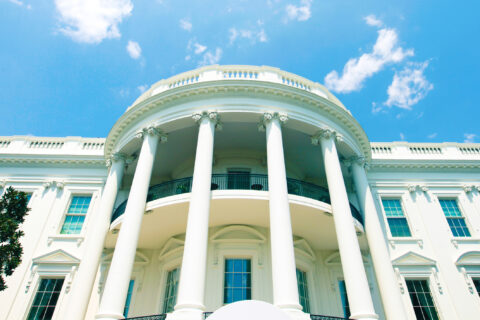Throughout much of 2020, our nation’s cities have grappled with two overlapping crises: the longstanding pandemic of systemic and structural racism and COVID-19. With the virus, data quickly emerged highlighting significantly disproportionate numbers of infection and mortality for Black, Indigenous, and People of Color (BIPOC). Heightened awareness of these disproportionalities became a spotlight on racial inequities. When George Floyd was murdered by a Minneapolis police officer on May 25, it became a moment of reckoning.
While the position of Chief Equity Officer (CEO) is a relatively new one in local governments, more and more cities are adding this position to their infrastructure. Job descriptions vary, but most emphasize that the CEO serves as an organizational leader driving the development, implementation, and integration of best practices. Municipal CEOs are developing resources and working intentionally to increase diversity, equity, inclusion, and cultural proficiency in the organization. NLC had a chance to connect with three CEOs who shared their experience in the role.
Arlington, MA

Jillian Harvey began as the director of the division of Diversity, Equity & Inclusion, within the Department of Health and Human Services for the Town of Arlington, Massachusetts in the fall of 2019. She is responsible for coordinating and supporting the work of the Human Rights Commission, LGBTQIA+ Rainbow Commission and Disability Commission. Additionally, Jill serves as the ADA Coordinator for the Town, and is a member of the core racial equity team. She serves on the steering committee of the CHNA 17, which works to promote healthier communities, advance racial equity, and foster community engagement.
Historically, the Town of Arlington has shown its commitment to issues of equity through the creation of a Human Rights Commission in 1993 and the LGBTQIA+ Rainbow Commission in 2017. A longstanding Equal Opportunity Advisory Committee has successfully recommended policies requiring higher participation of women owned businesses in Town projects than is required by state law. The town also has made a commitment to inclusionary zoning and affordable housing opportunities.
In 2018 an Arlington police lieutenant published a series of racist and incendiary columns in a statewide police newsletter. This incident led to the town’s creation of Jill’s new municipal position. In 2019, Arlington joined the Government Alliance on Race & Equity (GARE) and initiated a multi-part training effort with NLC’s Race, Equity And Leadership (REAL). Arlington also contracted with a local racial equity consultancy, Powerful Pathways, to facilitate community-wide dialogues around race and equity.
Arlington’s ongoing commitment to racial equity is manifested in several actions:
- Creation of the Division of Diversity, Equity & Inclusion within the Department of Health & Human Services
- Formation of Core Team to work toward racial equity
- Development of a Racial Equity Action Plan
- Department by department analysis of instances of institutional or systemic racism
- Community teach-ins
- Study of Civilian Oversight Board for police and police policies and practice
- Continued work with NLC REAL to train Town staff
Dallas, TX
Liz Cedillo-Pereira is the Chief of Equity and Inclusion for the City of Dallas, Texas. She previously served as Director of the Office of Welcoming Communities and Immigrant Affairs (WCIA) established in March 2017. In this position, Cedillo-Pereira has overseen the community-driven process to develop a comprehensive Strategic Welcoming Plan for the City of Dallas that was unanimously adopted by Dallas City Council in October 2018. A native of Dallas, Cedillo-Pereira has more than 15 years of experience at the federal, state, and local level in human rights, immigration, and anti-trafficking related matters.
The City of Dallas’s equity and inclusion efforts are built on clear definition and commitment to a series of core values of service, including empathy, ethics, excellence, and equity. During the pandemic, Dallas has applied its equity impact assessment tool to understand both the socioeconomic capacity to recover from COVID-19 and the potential for high positive cases. Identifying three main factors affecting vulnerability were key: Economic status, race, and age. Effective response relies on data-informed decision making. To accomplish this, Dallas involved community stakeholders and employed targeted tactics:
- Engaged with La Alianza and Black COVID-19 Task Force
- Deployed Mobile Testing Units
- Ensured broad PPE distribution
- Deployed digital navigators to pinpoint and help bridge the digital divide
- Launched an eviction assistance initiative
During the summer, the City of Dallas sponsored a three-part community conversation series beginning with a session on truth, racial healing, and transformation, followed by a conversation about justice, and a third event focusing on resilience.
Minneapolis, MN
Joy Marsh-Stephens is the director of the Division of Race and Equity for the City of Minneapolis, Minnesota. Since joining the City in 2015, Marsh-Stephens has focused on growing the capacity of City staff to integrate racial equity into everyday decision-making, business planning, the budget, strategic planning, employee engagement activities, and policymaking. Joy partners closely with cities, counties and state agencies across the nation that are also committed to advancing racial equity. Marsh-Stephens came to the City of Minneapolis with over 20 years of experience leading large-scale systems change initiatives in multiple sectors including financial services, healthcare, education, and government.In Minneapolis, the work to eliminate socio-economic disparities is focused on ensuring that what we look like and where we come from should not determine the benefits, burdens, or responsibilities we bear in society. The city’s stated belief is that all people are created equal in
terms of rights, dignity, and the potential to achieve great things. Inequality based on race, gender, and other social characteristics are not only unfortunate but unjust. City data points to racial disparities in several areas:
- Minneapolis median household income is approximately $68,000 for White families while Black families’ median household income is approximately $30,000.
- African Americans in Minneapolis experience unemployment at three times the rate of White residents.
- Minneapolis has the largest home ownership disparity between White and Black families; 76% of White families own their homes, while the home ownership rate among Blacks is 25%.
- 32% of all Minnesotan communities are above risk guidelines for air quality but a disproportionate 91% of communities of color and indigenous communities are above risk guidelines.
- The statewide average for attainment of a bachelor’s degree is 52% while the rate for African Americans is 32.7% and American Indian rate is 22.6%.
- Blacks make up 31% and Indigenous people make up 8% of the incarcerated population but only 7% and 1%, respectively, of the statewide population.
Minneapolis’s most recent efforts to address these inequities include:
- Adoption of a racial equity action plan in July 2019
- Passage of a resolution marking 400 years since the start of African enslavement in the U.S. in August 2019.
- Elimination of single-family zoning in October 2019.
- Launch of a Racial Equity Impact Analysis in February 2020.
- Declaration of racism as a public health emergency in June 2020.
- Naming of cultural districts in the city in August 2020.
- Launching of an exploratory truth and reconciliation process in October 2020.
The city’s leadership acknowledges that Minneapolis has a long history going back 100 years of redlining and intentional segregation. The commitment is to make sure that the precision of their solutions matches the precision of the harm initially inflicted.
These are just three city examples of intentional efforts to address racial inequity through city infrastructure – dedicated staff to ensure planning and action to change policies, practices, and procedures. The NLC REALteam offers several resources to strengthen local leaders’ knowledge and capacity to eliminate racial disparities, heal racial divisions and build more equitable communities. REAL’s work with these and other cities, towns, and villages incudes detailed municipal action guides, racial equity training, case studies, assessments, and capacity building.







